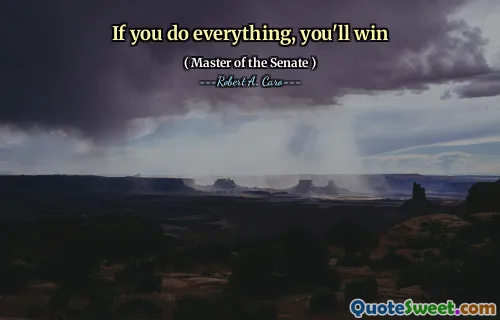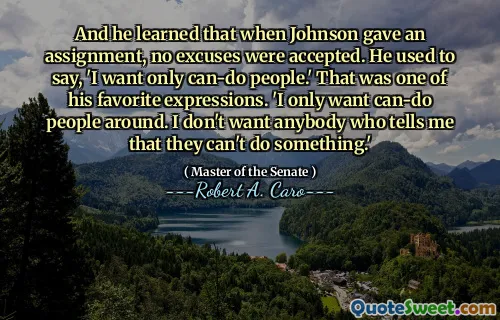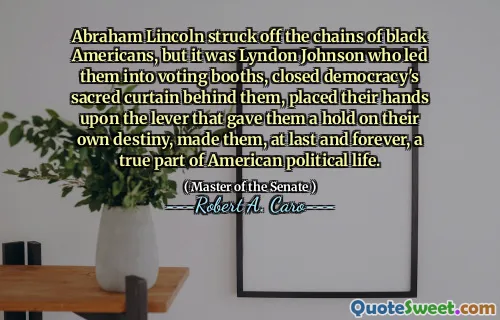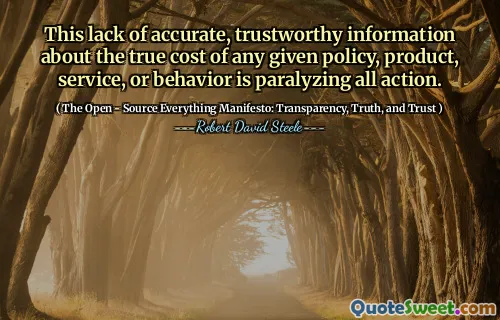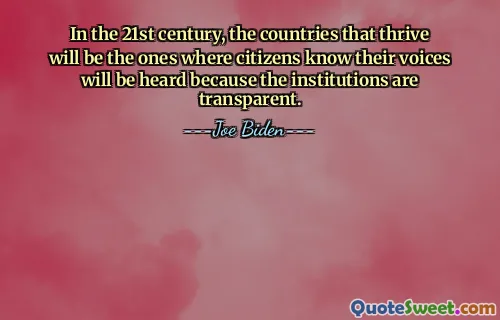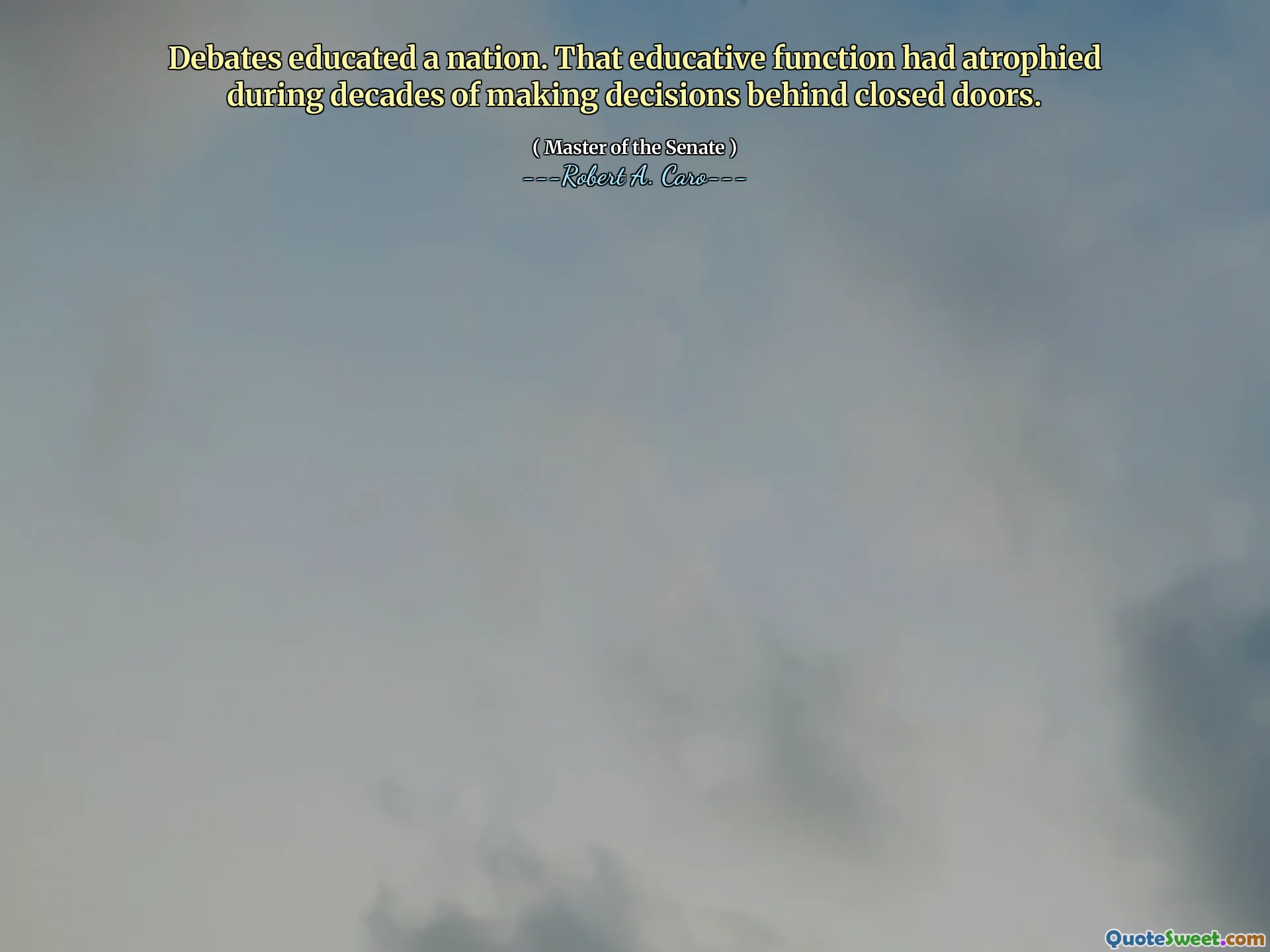
Debates educated a nation. That educative function had atrophied during decades of making decisions behind closed doors.
In this insightful quote from Robert A. Caro's Master of the Senate, the power of public debate is profoundly emphasized as a critical pillar of democratic education. The first sentence succinctly captures the essential role that open discourse has historically played in informing and enlightening the populace. Through debates, citizens are exposed to diverse viewpoints, enabling them to engage critically with policies and ideas that shape their society. This process not only fosters a well-informed electorate but also encourages accountability and transparency within governance.
Conversely, the second sentence serves as a cautionary reflection on the detrimental effects when decision-making shifts to secrecy. When leaders confine themselves to 'closed doors,' the educative potential disappears; the public becomes disconnected from the mechanisms of power, and the democratic process weakens. The phrase 'had atrophied' vividly conveys this stagnation and decline, likening the loss of open debate to a vital muscle wasting away from disuse.
Caro's quote impressively underscores the dynamic relationship between transparency, public engagement, and the health of a democracy. It reminds us that beyond the production of laws and policies, the process of open discussion itself shapes the civic consciousness. In an era where information can be both abundant and fragmented, reclaiming the tradition of open debate is perhaps more crucial than ever. It acts as a safeguard, ensuring that governance remains connected to the people's interests and that citizens remain active participants rather than passive observers in their nation's progress.
